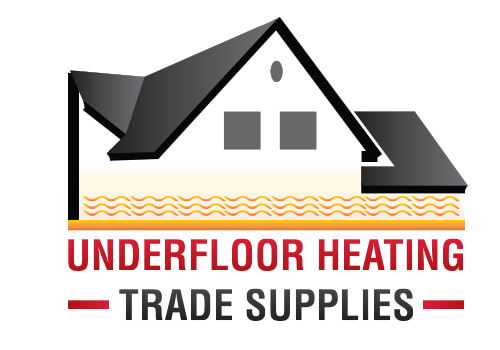
Despite the pandemic, over a million homes were sold in 2020 in the UK[1], showing that, as long you practice good caution and follow the correct laws, coronavirus doesn’t have to put you off selling your own. So if you’re unsure about how to sell your house or you’re a nervous first time seller in 2021, we have some advice on what you’ll need to consider to get the best value for your home. In this guide, we’ll give you some ideas of potential fees, getting your property valued, choosing the right estate agent and getting the best price for your house, so let’s get started.
1. Get your finances in order
- Check your mortgage term – Before you start the wheels turning to get your house on the market, you’ll need to check if you’re still in an existing mortgage term. If the answer is yes, you’ll have to look into the fees you may be liable to pay by moving. Fees like early repayment charges can considerably hike up the expense, so it may be best to wait until the deal ends to save your money. If you’re on your lender’s standard variable rate (the price you pay when the fixed-rate or tracker period of your mortgage ends), there shouldn’t be any penalty fees when you move. If you’ve got a ‘portable’ mortgage, it’s likely you’ll be okay too, but it’s always a good idea to check with your lender first.
- Understand how much your house is worth – Use a valuation tool to check how much your home is worth and how much money you’ll have remaining after your mortgage is paid off. This will help you when it comes to budgeting for a new property. There are some great tools online to help you with this, like this one.
- Look into selling costs – Can you afford to sell at the moment? There are a lot of costs involved with selling a home which you may have not thought about, make sure you do your research and take these costs into consideration when it’s time to sell.
2. Clean and stage your home
Before your house hits the market, make sure it is desirable to potential buyers. Every property needs a spruce up, whether it’s small wear and tear or a complete spring clean, and if you want to sell your home, this is where you’ll need to start – no one will want to pay big for an unkempt house. For the best chance of selling your property quickly and getting a fair price, you’ll want to fix any issues and declutter before you start showing people around.
Interior – The easiest tasks could instantly make your home more sellable, so make sure everything’s put away properly and all your bits and bobs are tidied and neat. Some other things you could do to make the interior of your house instantly eye catching are:
- Make rooms less personal so potential buyers can see themselves in them
- Hang up mirrors and use as much natural light as possible to make areas seem bigger and brighter
- Draw attention to your house’s best features
- Make the rooms show their intended purpose
- Make repairs and bigger improvements if you believe they will increase the value of your home – some buyers go as far as installing new kitchens and bathrooms before going to sell.
Exterior – Before people even get inside your house, they’ll be making quick decisions based on the exterior of your property. Make sure your garden’s in shape and get any necessary repairs done to the house if you can, though some things you can do yourself are:
- Clean your windows
- Mow the lawn
- Look after any flowers/plants
- Clean up the doors, the driveway and any outbuildings
If considering professional improvements, it’s in your best interest to work out what will help the property sell for a higher value and what would be a complete waste of your money. Renovations can be costly, so if a room can be done up with a D.I.Y paint job and a few replacement features it would be cheaper for you to do these yourself and bring in professionals only for the necessary jobs.
3. Get your home professionally valued
This is one of the most important steps of the process. Putting your home on the market for the wrong price could mean your house will be left on the market for a prolonged period of time or that it sells for way less than it is worth, so research and patience here are vital. Have your house professionally valued and ask if there are any changes you could make to improve the value of your house if you are looking for a better sale price.
4. Do your own research
Instead of jumping straight in with estate agents, look online for recent sold house prices in your area to give you a general idea of how much your house could be worth. Make sure you pay attention to houses of similar size and specifications to your own and be realistic when comparing them – if similar houses have sold for those prices, it’s doubtful your house will sell for much more than that. This way, you’ll be estimating accurately and can know if any offered prices are worth taking or not.
5. Contact local estate agents
Once you have your own ideas about the value of your home, have at least three estate agents come in and give you their estimates. To get an overall view, it’s worth bringing in different types of agents for your valuations: try a high street chain, a local business and an online enterprise – this will give you a more balanced idea on the value you’re looking at plus help you decide which agent you’ll use, if you plan on using one at all. Don’t tell any of the agents the values that the others have given you as it might distort their own, and ask them to bring along paperwork of sold prices in the area. It’s normal for estate agents’ valuations to differ substantially, but opting for a figure in the middle of these should give you the most sensible option.
6. Find a conveyancer
Conveyancing is a necessary process that oversees the transfer of a property from one person to another and has to be done by law[2]. To do this, you’ll need a licensed conveyancer or a solicitor. They’ll both handle all the paperwork, searches, contracts and exchange of money, the only difference between the two is that a conveyancer specialises in property law, so the choice of who you go to is yours. Your estate agent may recommend one or the other, though they probably have a financial agreement with them that could cost you more, so it might be worth finding one yourself. It’s worth finding a conveyancer before you put your house on the market as it will speed up the process.
Fees for conveyancers and solicitors vary, so you should do your research here, and ask for a full breakdown of costs when comparing so you know what that quote includes.
7. Advertise your property
There are many ways that you can sell your house, but it all comes down to your circumstances and preferences. If you’re happy to do most of the work yourself, bypassing estate agents could save you lots of money, but if you don’t have much time to do everything, an estate agent will do it all for you.
We’ve broken down the main ways you can go about selling your house, what they do and average costs to help you decide which one will be best for you.
High Street Estate Agents
High street estate agents are still the most popular option when it comes to selling our houses because of the ease for the seller. It’s in your best interest to research thoroughly which agent you want to use before settling because you could save a lot of money and time – look at reviews online and in newspapers, ask people who have used them to find an agent with a lot of experience and great feedback.
Benefits
- They’ll do all the work – High street estate agents will take care of everything when selling a house, including advertising, viewings and energy performance certificates.
- Different contracts – High street estate agents offer a sole contract or a multiple one. A sole contract means only one estate agent advertises your house whereas a multiple one means several estate agents will advertise your house, which tends to equal a quicker sale but is more expensive.
Negatives
- Expensive – A high street estate agent is more expensive than an online one – the average fee is 1.18%, plus VAT.[3]
Online Estate Agents
Using an online estate agent is cheaper than a high street one, though you will have to do a bit of the work yourself. There are plenty of online estate agents out there, so research each one and make sure your happy with the contract before you settle.
Benefits
- Cheaper – Online estate agents typically charge between £300 and £1,500, regardless of the overall value of your home[4],and normally operate on a ‘no sale, no fee’ system
- Flexiblity – As online agents work through the internet, they can arrange around your schedule quickly and easily. Their call centres can be contacted all day, every day, and some companies provide an online dashboard where progress can be updated.
Negatives
- You’ll have to do some of the work – Although some online agents can host viewings, they will charge extra, so it is likely you will be doing the viewings yourself.
- Hidden fees – Extra fees could be hidden in the packages and contracts, so make sure you research and read everything properly before going ahead
Selling Independently
Selling your property yourself will save you the most money, but is the most time-consuming option as you will have to do everything independently.
Benefits
- Most cost-effective option – You wouldn’t be paying any agent fees and could potentially save thousands
- Relatable – Potential buyers are more likely to relate to a homeowner over an estate agent because you know the house and local area
Negatives
- Time-consuming – You have to do everything yourself, including advertising and hosting viewings
- Can’t use housing sites – You won’t be able to use housing sites such as Rightmove or Zoopla to advertise. Try making use of social media, newspapers and local notice boards to get your property out there
Don’t rush your sale
Selling your house can be a stressful experience, but as long as you take each step carefully and research things thoroughly, you should find it substantially easier. Also, patience is key – your house is unlikely to be snapped up overnight and you have to be prepared to take your time.
If you clean up your home the best you can and ensure that all the legal processes are well taken care of, advertising and selling will be less daunting no matter how you choose to do it- you’ll be on your way to your new home before you know it!
Sources
[1] https://www.express.co.uk/life-style/property/1387246/house-prices-sold-2020-uk-latest-data-hmrc#:~:text=Property-,Property%20UK%3A%20Over%20a%20million%20homes%20sold%20in%20the,in%202020%20despite%20coronavirus%20crisis
[2] https://www.homepropertylawyers.com/news/buying-and-selling/what-is-conveyancing#:~:text=We%20define%20conveyancing%20as%20the,can%20exchange%20contracts%20and%20complete.
[3] https://www.movewise.co.uk/articles/estate-agent-fees
[4] https://www.which.co.uk/money/mortgages-and-property/home-movers/selling-a-house/online-estate-agents-ar2jr0g705uu#headline_3
